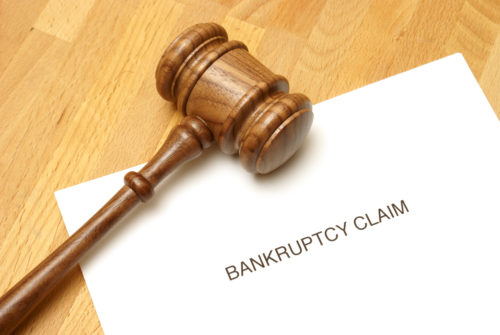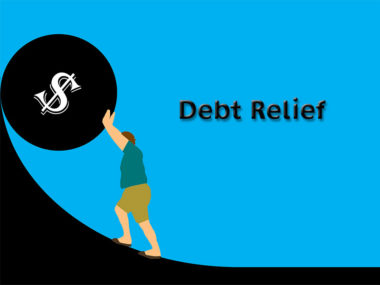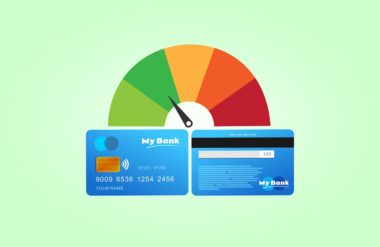Bankruptcy is a legal process for people who cannot repay their debts. After you file bankruptcy, a court assesses all your assets and may use them to repay a portion of your debts.
Ideally, bankruptcy provides you the opportunity to be free from debts while also enabling creditors to get at least a portion of their money back. Bankruptcy can erase debts, but the procedure often requires that you liquidate assets. Furthermore, bankruptcy can affect your ability to borrow money in the future.
Bankruptcy is more common than you might think. In 2017, 767,721 people filed for non-business-related bankruptcy. That might seem like a lot, but it is down from 2008 to 2013. During each of the years during that span, more than one million people went through bankruptcy proceedings.
There are three main types of bankruptcy.
- Chapter 7 bankruptcy is for people (or companies) with unsecured debt such as medical bills or credit card debt. You settle debts by liquidating any assets that you have.
- Chapter 11 bankruptcy is for businesses. It allows companies to reorganize to become more profitable. The goal is to use the profits to repay their debts.
- Finally, Chapter 13 bankruptcy is for people who are currently earning income and wish to restructure debt and create a workable payment plan to pay off what they owe. As long as they meet the payment requirements, Chapter 13 filers do not have to liquidate their property.
Table of Contents
How to File Bankruptcy
The bankruptcy process differs slightly by jurisdiction. All courts follow federal guidelines, but they also use local or state rules and procedures. For this reason, people filing bankruptcy usually hire an attorney who is familiar with local bankruptcy rules.
In addition to working with an attorney, federal laws require that people filing bankruptcy attend credit counseling within six months before they submit their petition to the court. The U.S. Department of Justice has a list of approved credit counseling programs.
Documents You Need for Filing Bankruptcy
You start the process by filing a petition for bankruptcy. Once you do this, creditors cannot repossess your home or property until the process gets completed. Your attorney usually handles this paperwork, but you will also need to submit documents detailing your assets. This evidence includes information about investments, bank accounts, valuables, collectibles, vehicles, and other items of value.
You also need to produce an account of all income, including money from wages, side jobs, investment dividends, and other forms of compensation. Alongside this financial data, you file a detailed list of living expenses. The goal of this list is to leave you with enough money to cover necessities after the bankruptcy process.
You support this evidence with official financial documents such as tax returns and paystubs. Also, you provide a full record of all current debts.
When you file bankruptcy, you must produce a certificate that shows you completed a credit counseling course, and you need to submit a debt repayment plan that you made with the credit counselor.
Cost and Effects of Bankruptcy
Fees for filing bankruptcy are $335 for Chapter 7 and $385 for Chapter 13. Additional administrative and court costs vary depending on the local rules.
A court-appointed trustee handles the actual process of liquidating assets or collecting money to pay creditors. You send relevant documents to the trustee and meet them at the start of the process. You also have a meeting with the trustee and the creditors where they can ask you questions about your financial situation and bankruptcy case.
Bankruptcy affects your credit score. Chapter 7 bankruptcy stays on your credit report for 10 years, while Chapter 13 bankruptcy remains on your credit history for seven years.
How long does the process take? The entire process for Chapter 7 bankruptcy lasts three to four months, while the repayment period for Chapter 13 bankruptcy is three to five years.
Should I File Bankruptcy?
There are a variety of reasons for filing bankruptcy, but in all cases, bankruptcy involves reaching an unmanageable level of debt.
- According to CNBC, 66.5% of personal bankruptcies are tied to medical bills. Though other resources exist to help people with medical bills, bankruptcy is often a solution for those with overwhelming hospital debts.
- A related reason for filing bankruptcy is not being able to earn wages because of medical issues or health problems.
- Bankruptcy can also be related to divorce proceedings.
- Creditors can force you to file bankruptcy by suing you for money owed.
- Some people are overwhelmed with credit card and personal loan debts.
- Bankruptcy can also involve the inability to repay mortgages or home foreclosure proceedings.
- You may be eligible to file for bankruptcy if you need to withdraw money from your retirement accounts to pay debts.
What Happens When You File Bankruptcy?
When you file bankruptcy, the end goal is the discharge of your debts. Once the process gets completed, your creditors cannot take any action against you to collect on those debts. However, bankruptcy may have a negative impact on your credit score. The insolvency could remain on your credit report for up to 10 years. Though your name will not get outwardly advertised, it will appear as public information and on court records.
If you have a cosigner for your loan, they are liable to help with repayment of the loans for which they cosigned. If someone cosigns, they are responsible under Chapter 7 bankruptcy rules, but may not be liable under Chapter 13 proceedings as long as you meet the repayment conditions.
You will not lose your house during bankruptcy proceedings as long as you continue to make payments on it. Foreclosure is the likely result of failing to make mortgage payments on time during bankruptcy proceedings.
One additional point to consider is whether spouses should enter bankruptcy together or individually. If only one spouse is liable for the debts leading bankruptcy petition, you can file separately to preserve the credit score of the other spouse. However, if both of you have some liability, then you need to file together to avoid further legal action from creditors.
How Much Does It Cost to File Bankruptcy?
According to the American Debt Help Organization, the average cost of bankruptcy is $1,500 to $4,000. For personal bankruptcy, the filing fees are $310 for Chapter 14 and $245 (plus a $15 trustee surcharge) for Chapter 7. Administrative costs are $75, and you may pay additional court fees depending on the jurisdiction. The average attorney fees are $1,072 for Chapter 7 and $2,564 for Chapter 13. However, these costs can vary drastically by state.
Credit counseling courses and services are usually reasonably priced. It will cost about $50 if you work with a nonprofit organization.
How Often Can You File Bankruptcy?
You can file for bankruptcy as often as you want, but you can only receive a discharge from your debts after a specific amount of time. You need to wait eight years between Chapter 7 filings or four years between a Chapter 7 discharge and a Chapter 13 discharge.
Chapter 13 filings require a two-year gap, while you have to wait six years if you file for Chapter 13 bankruptcy and then want to file for Chapter 7.
In general, however, the goal of bankruptcy discharges is to help people end their cycle of debt and financial problems.
Can You File Bankruptcy on Student Loans?
It is difficult to include student loans in bankruptcy filings because you need to prove that repaying the loan will cause undue hardship on you and your dependents.
The borrower needs to pass the Brunner Test, which proves that they cannot maintain a minimal standard of living if they have to pay off their student loans. They also need to show that additional circumstances, such as a disability or health issue, mean that they cannot change their financial condition in the future. Finally, they need to prove a good-faith effort to repay their loans.
Image Source: https://depositphotos.com/





